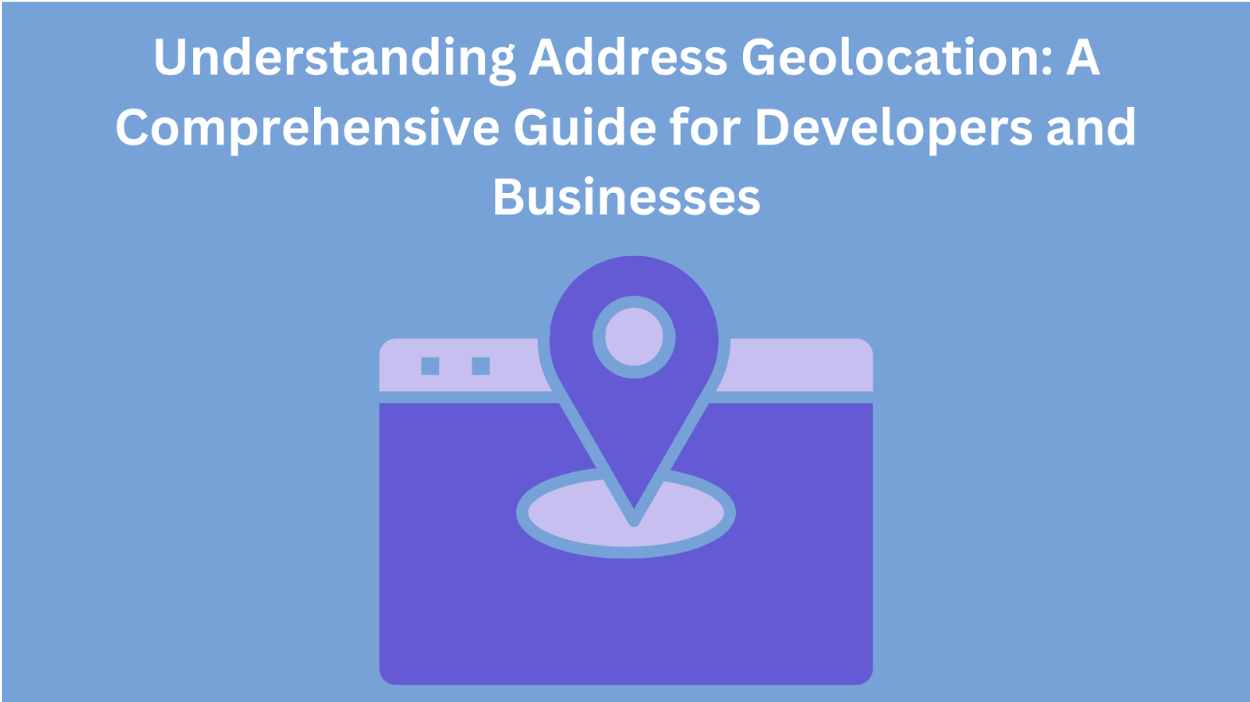In today's digital world, location-based services are crucial in various applications, from mapping and navigation to targeted marketing and asset tracking. One of the key components of location-based services is address geolocation, which involves translating a physical address into geographic coordinates (latitude and longitude) that can be used to pinpoint a location on a map.
In this blog post, we'll explore addressing geolocation in depth, discussing its importance, implementation, and common use cases.

What is Address Geolocation?
Address geolocation is the process of determining the geographic coordinates of a given address. This process involves using a geocoding service, which typically takes a textual address as input and returns the corresponding latitude and longitude coordinates. These coordinates can then be used to plot the address on a map or perform other location-based operations.
Importance of Address Geolocation
Address geolocation is crucial for a wide range of applications, including:
Address geolocation is used in mapping and navigation applications to help users find locations, get directions, and plan routes.
Businesses use address geolocation to target customers based on their geographic location, sending them relevant offers and promotions.
Address geolocation tracks the location of assets such as vehicles, packages, and equipment in real time.
Address geolocation is used in social media and photo-sharing platforms to add location information to posts and photos.

Implementing Address Geolocation
Address geolocation can be implemented using various geocoding services, such as Google Maps Geocoding API, Bing Maps Geocoding API, and OpenStreetMap Nominatim API. These services provide APIs that developers can use to geocode addresses and retrieve the corresponding coordinates.
Common Use Cases
Some common use cases of address geolocation include:
E-commerce websites use address geolocation to provide location-based services such as store locator, local delivery, and accurate shipping calculations.
Real estate websites use address geolocation to display property listings on a map and provide information about nearby amenities and attractions.
Companies with a fleet of vehicles use address geolocation to track the location of their vehicles and optimize routes for efficiency.
Emergency services use address geolocation to quickly locate the address of a caller in case of an emergency.
Conclusion
Address geolocation is a critical component of location-based services, enabling developers and businesses to accurately determine the geographic coordinates of addresses and leverage this information in various applications. By understanding the importance of address geolocation and how it can be implemented, developers and businesses can enhance their applications with location-based features and provide better services to their users.
FAQs
1. How accurate is address geolocation?
Address geolocation accuracy can vary depending on the geocoding service and the quality of the address data. In general, geocoding services strive for high accuracy, but there may be cases where the geocoded coordinates are slightly off.
2. Can address geolocation be used to track individuals?
Address geolocation services are typically used for mapping and location-based services and do not track individuals' movements in real time. However, privacy concerns should always be taken into consideration when implementing location-based services.
3. Is address geolocation free?
Some geocoding services offer free usage up to a certain limit, while others may charge a fee based on usage. Developers should check the pricing and terms of service of the geocoding service they plan to use.
4. Can address geolocation be used offline?
Some geocoding services offer offline geocoding capabilities, allowing developers to geocode addresses without an internet connection. However, offline geocoding may require additional setup and resources.